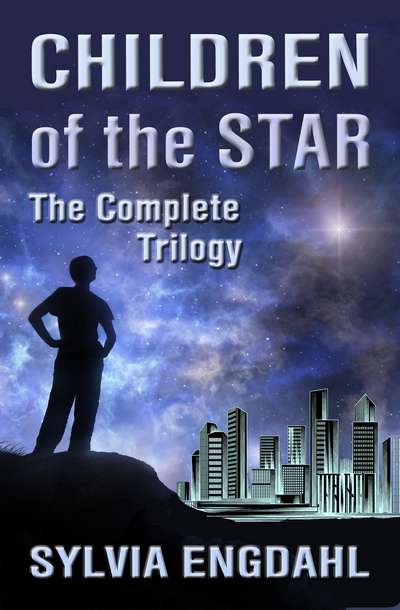
Quotes from Reviews of
Children of the Star
A trilogy by Sylvia Engdahl
"The small press, Meisha Merlin, does remarkable work in re-publishing
science fiction. It is to be especially appreciated for this re-publication
of Sylvia Engdahl's 'Children of the Star' trilogy, here for the first time
in one volume.... [The novels were first] marketed as young adult books, but
there is nothing juvenile about them.... Engdahl tells an important and
pertinent story, a parable about the ethical uses of mythology. The book, in
style as in substance, is a kind of Old Testament of another time and
place.... Under what conditions is it justifiable to keep people in
ignorance? Should knowledge ever be sequestered? Who can decide what is good
for other people? Is it legitimate to use religion to control a population
at risk? Engdahl opens all these questions and more in these novels, which
read quickly; the writing is plain and direct, the only lyricism in the
stunning liturgical language she invents."
--Roz Spafford, San Jose Mercury News, 4 June 2000
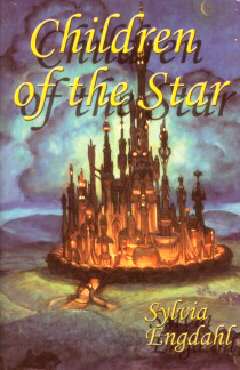 "You will almost certainly come away enriched from Children of the Star,
but at the same time you'll probably find the experience in some ways
to have been a gruelling one--this is not an easy read, in any sense of that
term. Which is perhaps another way of saying that it's an extremely good
book."
--John Grant,
InfinityPlus, July 2001 (This review contains major spoilers -- read
the book first!)
"You will almost certainly come away enriched from Children of the Star,
but at the same time you'll probably find the experience in some ways
to have been a gruelling one--this is not an easy read, in any sense of that
term. Which is perhaps another way of saying that it's an extremely good
book."
--John Grant,
InfinityPlus, July 2001 (This review contains major spoilers -- read
the book first!)
"It all comes together beautifully. The Doors of the Universe is a riveting book....
These books explore big ideas about mankind and faith and survival. They also tell
a wonderful story of a young man trying to save his people and trying to live for Truth....
I highly recommend this trilogy for anyone who likes science fiction even a little bit."
--Sondra Eklund,
Sonderbooks, February 2003
"What I loved about these books (and Engdahl's others) is that she pulls no punches
-- her characters must struggle with genuinely difficult questions, though they are often
quite young, and at times have to make exceedingly painful choices."
--Mary Ann Mohanraj,
Strange Horizons
"Once again, Engdahl creates a believable and thought-provoking piece of SF/fantasy that doesn't
fall to the usual ray-guns-or-dragons cliches. The questions raised about freedom in this book kept
making me pause in the middle of a page, thinking deeply about what was being shown in the story....
For fans of originality/intelligence: There's plenty." --E. A. Solinas,
Amazon.com
(top-10 reviewer), May 31, 2001
A trilogy by Sylvia Engdahl
"The small press, Meisha Merlin, does remarkable work in re-publishing science fiction. It is to be especially appreciated for this re-publication of Sylvia Engdahl's 'Children of the Star' trilogy, here for the first time in one volume.... [The novels were first] marketed as young adult books, but there is nothing juvenile about them.... Engdahl tells an important and pertinent story, a parable about the ethical uses of mythology. The book, in style as in substance, is a kind of Old Testament of another time and place.... Under what conditions is it justifiable to keep people in ignorance? Should knowledge ever be sequestered? Who can decide what is good for other people? Is it legitimate to use religion to control a population at risk? Engdahl opens all these questions and more in these novels, which read quickly; the writing is plain and direct, the only lyricism in the stunning liturgical language she invents." --Roz Spafford, San Jose Mercury News, 4 June 2000 "You will almost certainly come away enriched from Children of the Star,
but at the same time you'll probably find the experience in some ways
to have been a gruelling one--this is not an easy read, in any sense of that
term. Which is perhaps another way of saying that it's an extremely good
book."
--John Grant,
InfinityPlus, July 2001 (This review contains major spoilers -- read
the book first!)
"You will almost certainly come away enriched from Children of the Star,
but at the same time you'll probably find the experience in some ways
to have been a gruelling one--this is not an easy read, in any sense of that
term. Which is perhaps another way of saying that it's an extremely good
book."
--John Grant,
InfinityPlus, July 2001 (This review contains major spoilers -- read
the book first!)"It all comes together beautifully. The Doors of the Universe is a riveting book.... These books explore big ideas about mankind and faith and survival. They also tell a wonderful story of a young man trying to save his people and trying to live for Truth.... I highly recommend this trilogy for anyone who likes science fiction even a little bit." --Sondra Eklund, Sonderbooks, February 2003
"What I loved about these books (and Engdahl's others) is that she pulls no punches -- her characters must struggle with genuinely difficult questions, though they are often quite young, and at times have to make exceedingly painful choices." --Mary Ann Mohanraj, Strange Horizons
"Once again, Engdahl creates a believable and thought-provoking piece of SF/fantasy that doesn't fall to the usual ray-guns-or-dragons cliches. The questions raised about freedom in this book kept making me pause in the middle of a page, thinking deeply about what was being shown in the story.... For fans of originality/intelligence: There's plenty." --E. A. Solinas, Amazon.com (top-10 reviewer), May 31, 2001
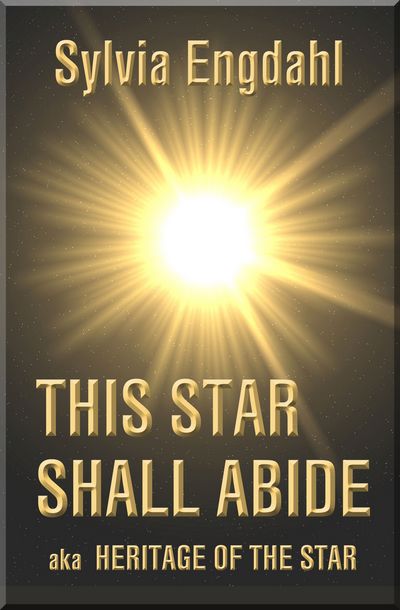
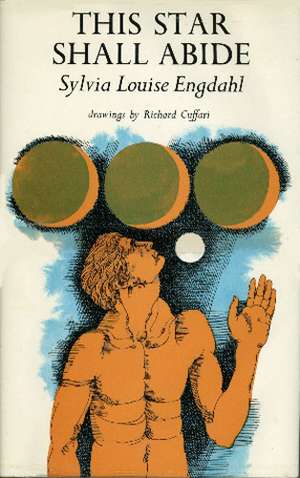 "Superior future fiction concerning the fate of an idealistic misfit, Noren,
who rebels against his highly repressive society.... Although there is little
overt action, the attention of mature sci fi readers will be held by the
skillful writing and excellent plot and character development."
--School Library Journal, 15 May 1972
"Superior future fiction concerning the fate of an idealistic misfit, Noren,
who rebels against his highly repressive society.... Although there is little
overt action, the attention of mature sci fi readers will be held by the
skillful writing and excellent plot and character development."
--School Library Journal, 15 May 1972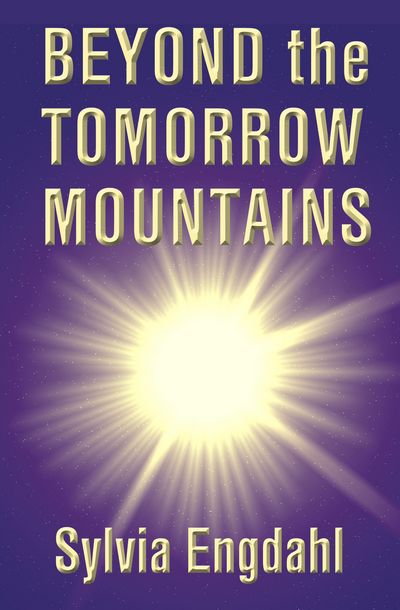
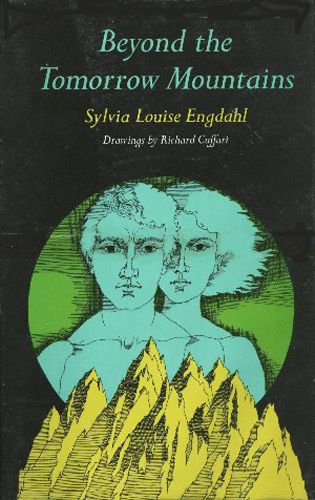 "Engdahl's science fiction I cannot praise highly enough. Anyone truly
interested in books of philosophical and moral depth for young people should
fix her name in his mind.... The questions posed are not easy, the answers
are rarely pat, but surely in a time of moral, social, economic and ecological
crisis they are extremely relevant."
--Provident Book Finder, Scottsdale PA, March-April 1974
"Engdahl's science fiction I cannot praise highly enough. Anyone truly
interested in books of philosophical and moral depth for young people should
fix her name in his mind.... The questions posed are not easy, the answers
are rarely pat, but surely in a time of moral, social, economic and ecological
crisis they are extremely relevant."
--Provident Book Finder, Scottsdale PA, March-April 1974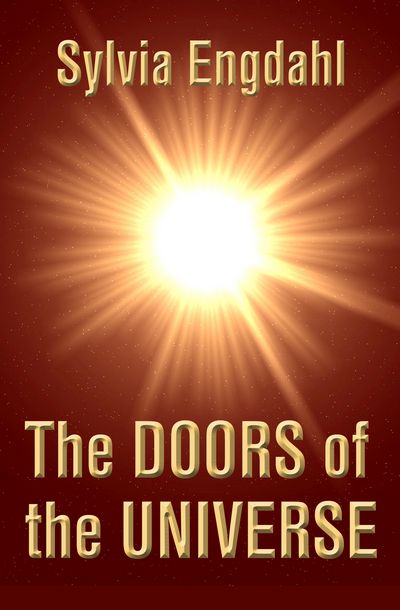
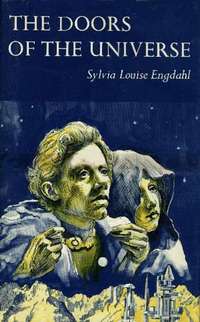 "Engdahl again proves herself a master storyteller in this third book of her
sci-fi trilogy. As a converted sci-fi hater, I am again impressed with the
depth of ideas that she explores.... The constant twists and expansions of
plot keep the reader's attention from lagging."
--Provident Book Finder, Scottsdale PA, October 1981
"Engdahl again proves herself a master storyteller in this third book of her
sci-fi trilogy. As a converted sci-fi hater, I am again impressed with the
depth of ideas that she explores.... The constant twists and expansions of
plot keep the reader's attention from lagging."
--Provident Book Finder, Scottsdale PA, October 1981